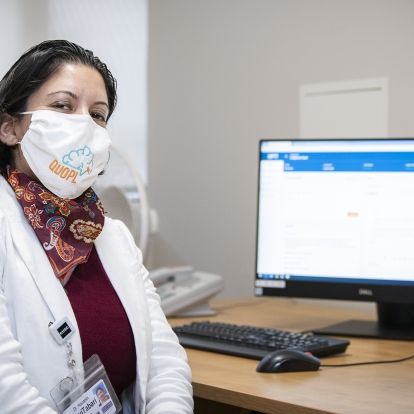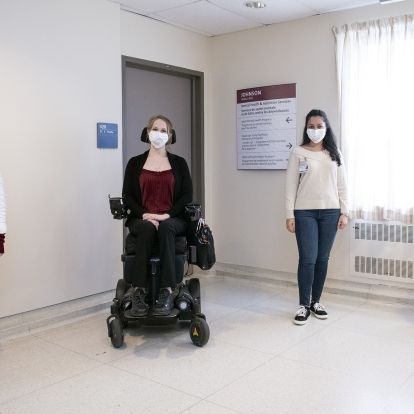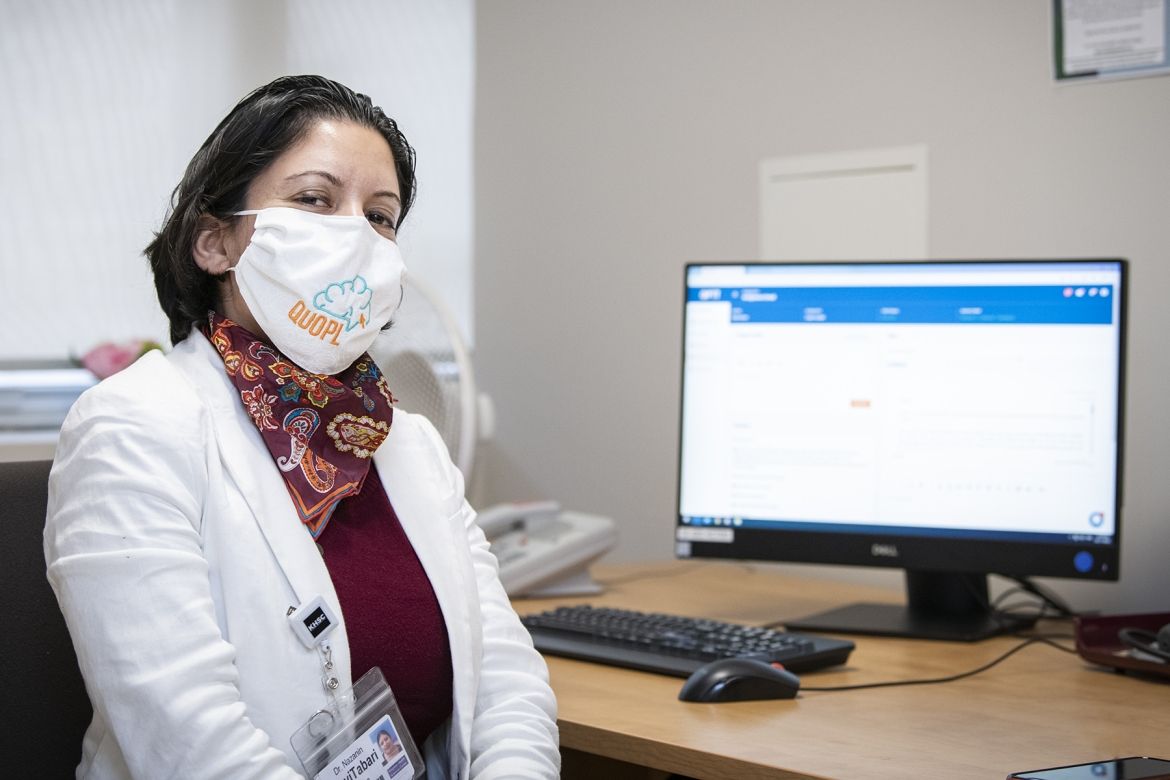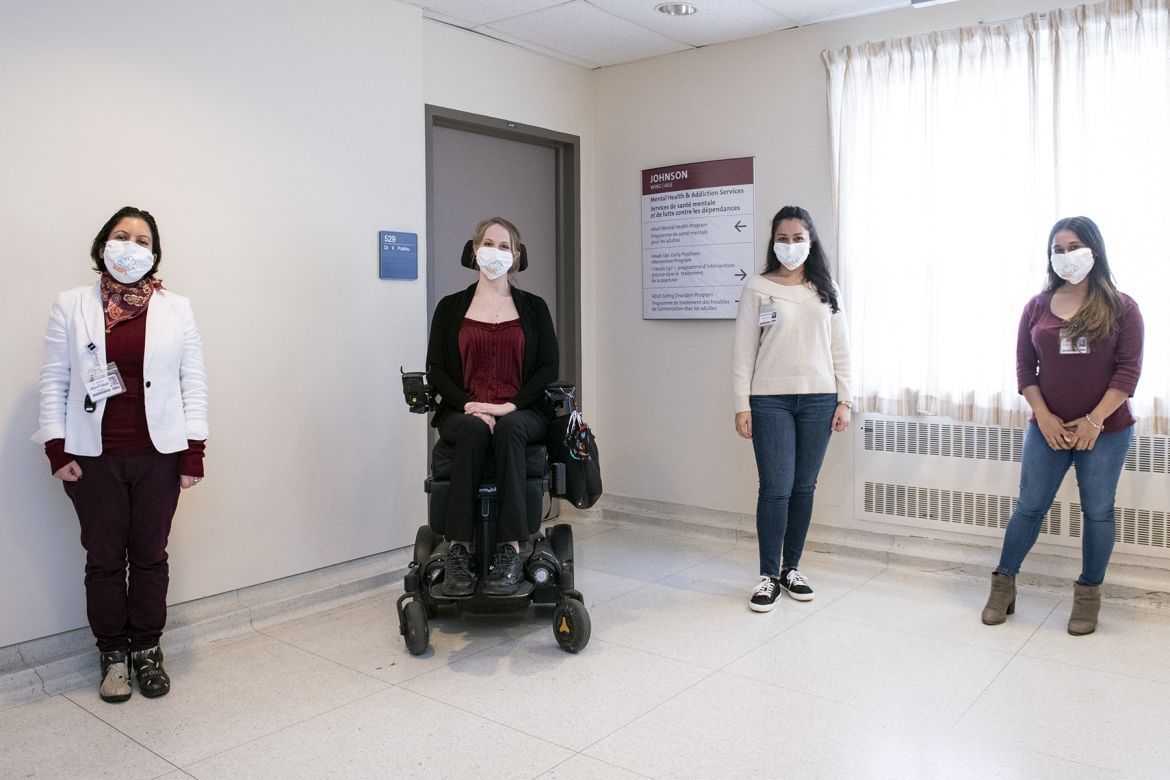
Over 200 people in the Kingston area struggling with anxiety and depression have enrolled in a free, nine- to 12-week online cognitive behavioural therapy (CBT) program through Kingston Health Sciences Centre’s (KHSC) Mental Health and Addiction program.
“This online program is making it easier and faster for people to access therapy that teaches them helpful techniques for managing their thoughts and behaviours,” says Dr. Nazanin Alavi, a psychiatrist at KHSC. “For some of the participants in the program, their concerns started during the COVID-19 pandemic; and for others, the pandemic has heightened the mental health challenges they were already experiencing.”
For several years before the pandemic began, KHSC had been referring patients in its emergency department and urgent care centre to programs using the Online Psychotherapy Tool, co-founded by Dr. Alavi and Dr. Mohsen Omrani, a neuroscientist. The tool helps address some of the barriers – such as stigma, cost and wait times – people face in accessing treatment for various illnesses, including depression, anxiety, and disorder related to post-traumatic stress, borderline personality and substance use.
KHSC recently added the use of online psychotherapy to the group and individual therapy sessions available through its outpatient clinics at its Hotel Dieu Hospital site. Around the same time, a specific online COVID psychotherapy clinic began as part of a research study through Queen’s University.
Dr. Alavi has been researching the effectiveness of online psychotherapy for over ten years and says that in addition to reducing barriers to accessing care, there are many positive outcomes of adding online programs to existing services.
“Among the people who decide to stop therapy before completing a program, those who participate in online therapy tend to stick with it longer than those engaged in group or individual sessions,” says Dr. Alavi. “In my experience, for this group, the average number of traditional sessions completed is two to three, compared to eight online in a 12-week program.”
The online CBT program begins with a therapist’s assessment by voice or video call to make sure the program is an appropriate treatment option. That initial meeting also establishes a rapport that develops over nine to 12 weekly sessions, during which the therapist provides personalized feedback.
Each week, participants in the program learn and are guided to develop a new skill that they are encouraged to incorporate into their daily lives. For example, when people learn to challenge their negative beliefs and see things from other perspectives, extreme emotions and behaviours associated with those thoughts can start to lessen.
Participant satisfaction is assessed throughout the program to understand how it is working for people and whether or not adjustments need to be made. One participant wrote, “Online CBT is such an effective intervention that I dream of more access for more people.”
Since expanding the use of online psychotherapy at KHSC, the majority of referrals to the online program have come from family doctors and psychiatrists, but people have also been referring themselves directly to the program.
Here’s what participants and members of the care team are saying about the program
“People are generally really eager to get started with the program and improve their health in this way,” says Gina Layzell, a fourth-year St Lawrence College Behavioural Psychology student, who, as part of her honours degree work placement, conducts the intake interviews that help with the program’s assessment process.
“I really appreciate the time that Dr. Alavi and her team put in to make this program possible. You are all so kind and I am so happy that I was able to participate and that the results were amazing. Thank you again,” wrote an anonymous participant.
“I have a master’s degree in public health, but since working with Dr. Alavi and seeing firsthand the impact of this work, I’m going back to school to get my masters in counselling psychology,” says Charmy Patel, research lab manager.
“Dr. Alavi has changed my life for the better,” and “I truly appreciate the help, and recommend to many people,” are additional comments written by anonymous participants.
The students working with Dr. Alavi expressed gratitude for being able to gain meaningful, practical experience during the COVID-19 pandemic when physical distancing is required. Niloufar Malakouti, a physician from Iran and master’s student in Rehabilitation Science at Queen’s University, says working as a research assistant has provided her with valued experience working with patients in Canada.
Gallery



Dr. Nazanin Alavi, a KHSC psychiatrist and its clinical lead for Emergency Psychiatry, is a pioneer of online cognitive behavioural therapy in Canada, with more than 12 years of experience in delivering and researching online psychotherapy.

A few of the care team members who are working with Dr. Alavi (left) to make online psychotherapy available to more people. Second, third and fourth from left: Gina Layzell, a fourth-year St Lawrence College Behavioural Psychology student; Niloufar Malako



